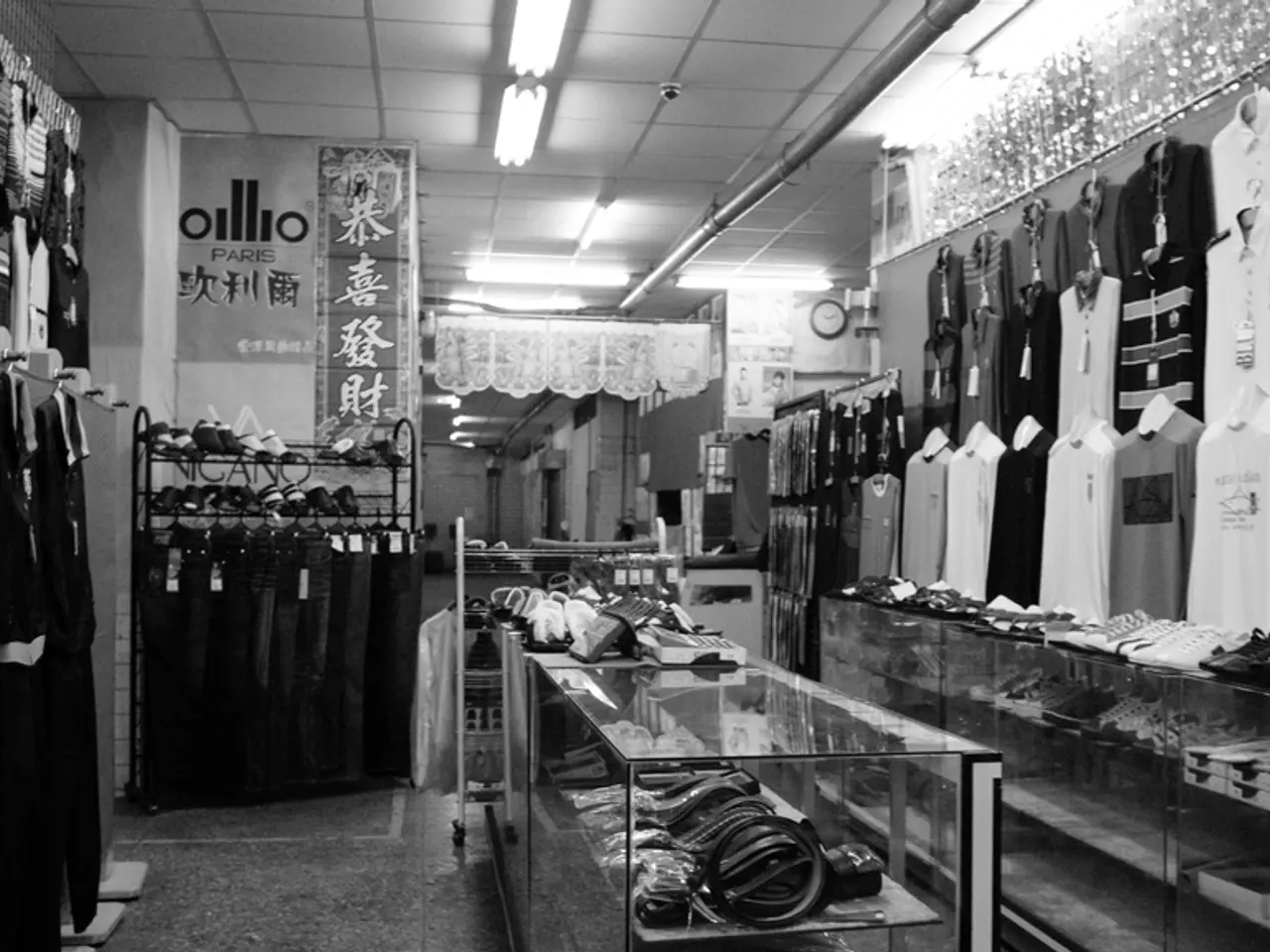A retrospective glance at the two-decade evolution of Tokyo Fashion Week
Japan Fashion Week Organisation (JFWO) Celebrates 20th Anniversary with Renewed Momentum
In 2005, the Japan Fashion Week Organisation (JFWO) was established to address the challenges faced by Japan's fashion industry in gaining media and buyer attention. The organisation, responsible for organising Tokyo Fashion Week, has since played a crucial role in promoting Japanese fashion both domestically and internationally.
Prior to the establishment of JFWO, the Japanese fashion industry struggled to garner attention from the media and buyers. However, over the past 20 years, JFWO has organised 524 fashion shows in total, including the AW23 Rakuten Fashion Week Tokyo, which saw a renewed momentum, bolstered by the anniversary show of popular streetwear brand BAPE.
The pandemic in 2020 led to a shift in the fashion industry, with many events, including Rakuten Fashion Week Tokyo, moving to digital formats. In response, Rakuten and the fashion week introduced 'By R', a support initiative for Japanese and international designers. The first brands selected for 'By R' were Doublet and Facetasm.
Rakuten Fashion Week Tokyo's partnership fed into a wider Rakuten Fashion strategy, aimed at promoting Japanese fashion globally. In 2011, Mercedes-Benz became the first title sponsor for Japan Fashion Week Tokyo, further boosting its reputation. In 2010, JFWO signed a five-year agreement with IMG Fashion to push for growth and increase Tokyo's reputation as a major textile and fashion player.
In 2024, the first Japanese edition of French trade show Tranoï took place, coinciding with the SS25 fashion week. This collaboration reinforced promotional activities related to the Florentine menswear fair, Pitti Uomo.
The JFW Next Brand Award was launched in 2022 as part of the JFW Brand Support Programme, providing a platform for emerging Japanese designers. The theme for this season is 'Be The Seam That Connects The World - JFWO 20 + 20'.
In 2005, the industry underwent a review that determined a need for a platform to help unify and strengthen the Tokyo fashion scene. In response, designers, manufacturers, and members of the apparel and retail industry came together to establish the Fashion Strategy Forum, which is now known as the JFWO.
As Tokyo Fashion Week enters its 20th edition, it continues to evolve and adapt, with Rakuten Fashion Week Tokyo updating its structure to remove digital content and place emphasis on individual brand shows and national organisation shows. The JFW Tokyo Fashion Award setup has been updated, with support for selected designers now covering a two-year period and including opportunities in Seoul, South Korea and Paris Fashion Week.
Despite its success, the name of the founder or spokesperson of the JFWO in 2005 is not mentioned in the available sources. Regardless, the organisation's impact on the Japanese fashion industry is undeniable, and it continues to play a pivotal role in promoting Japanese fashion on the global stage.








